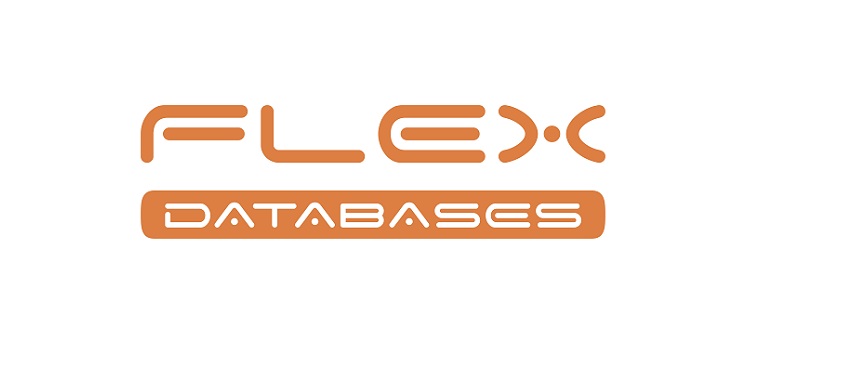The past few years have created something of a boom in the development of Blockchain technology and its emerging applications within various industries and spheres of life.
Following our strategic policy of continuous improvement and the constant implementation of emerging innovations, Flex Databases has singled out Blockchain technology specifically in the company’s forthcoming development plan, along with a study of the functionality applications associated with Big Data and neural networks for our field in particular.
Technological Challenges
Blockchain technology does not only ensure data security, but also data authenticity. One of the essential functionalities demanded from developers of such platforms as EDC, pharmacovigilance automation software or others used for clinical research and business processes automation in life sciences is the Audit Trail. The requirements for a lawful Audit Trail are expounded upon in FDA 21 CFR Part 11 and other frameworks, laws, and standards for such software. At the moment, developers try to guarantee the authenticity of the Audit Trail with a range of different methods – there are distributed databases that prevent changes from being made to the data, there are Read Only CDs where data can be frozen and stored, and of course, there are physical documents which can be used as records of the final version of the entire system among other strategies. Aiming to improve performance and to protect data from changes as much as possible, and to ensure the authenticity of data and the complete absence of the possibility of changes in the Audit Trail, security specialists continue to search for new and improved technologies.
Blockchain Technology
As part of our strategic policy of continuous improvement and the implementation of emerging innovations, Flex Databases develops new functionality using Merkle tree algorithm. The new storage structure of the Flex Databases Blockchain Audit Trail will be a tree with hashes from individual data blocks in its leaf nodes, and internal vertices that contain hashes from values held in the child vertices. The root node of the tree contains a hash from the entire data set, that is, the hash tree is a unidirectional hash function which ensures data consistency through the interdependence of the parts which compose the whole data tree.
In our version of the implementation, the primary entry consists of its own hash identifier, a hash of each transaction, and the information of the specific Audit Trail entry (A unique system record ID, username of the user who initiated the change, system time when the change occurred as well as the type of change and the entry’s previous value). Any change in the system of any datum (namely, an Insert, Update, or Delete operation) generates a new Audit Trail transaction that receives its own unique hash identifier (at the moment we use the SHA-256 crypto algorithm) and is written to the newest transaction block. Thus, each new record becomes a new link in an unmodifiable chain which is inseparably connected to all of the previous entries, since each entry in the chain is dependent on the entries before it.
Distributed storage
All Flex Databases systems are already stored using distributed clusters. At each of the end nodes of any cluster, the entire library of client data is completely duplicated; nevertheless, in accordance with the principle of distributed storage of Blockchain and to increase the level of security and reliability, we decided to implement a distributed mechanism for storing the Audit Trail of a specific client installation of Flex Databases EDC. At a client’s request, this can be a single server or multiple servers, to which all data from new transactions are replicated in real time. Ultimately, this technology can be developed and used by regulators to ensure the complete control of data changes and their authenticity. If the database is installed by the regulator, that person will always be able to verify the veracity and legitimacy of any data transaction that has occurred in the system and has the ability to track the complete life cycle of any entry.
Flex Databases will continue our search for innovation and our cutting edge work with Blockchain technology. With the release of the next version of Flex Databases EDC 5.0, this functionality will already be available to customers who are part of the Flex Databases Early Adopter Program. In the future, we plan to offer Flex Databases Blockchain Audit Trail to all of our customers and expand its use throughout the entire system, including CTMS and TMF.
About Flex Databases
Flex Databases is a company that provides e-solutions for clinical trials. Software provided by Flex Databases makes the entire clinical trials process and the management of pharma, biotech and CRO seamless and controlled. It means more effective information processing, data management that saves you time, flawless report generation and capabilities plus KPI tracking. Unlike the majority of similar environments on the market, the Flex Databases platform is completely customizable and can be adapted to meet even the most specific needs. Our wide array of built in modules are designed to address each step of the Research and Development process and give our clients an edge in streamlining their workflow. Flex Databases is a reliable IT vendor that is agile and provides constant client support with our unique understanding of the market and an unwavering focus on quality. We offer a unique platform which allows you to combine the traditionally separated procedures associated with clinical trials management (CTMS, TMF, EDC&IWRS) with the functionality to run internal pharma companies and CRO processes as well as the capability to manage financial data, invoicing and expenses. Every module developed by Flex Databases is tested, validated and 21 CFR Part 11 compliant.
Flex Databases website: www.flexdatabases.com



























